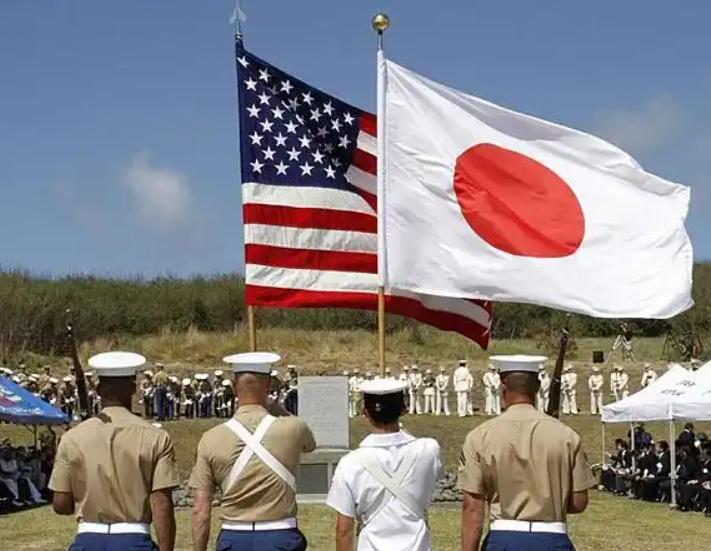
The meeting of the US-Japan Security Consultation Committee, also known as the "2+2" security talks, was originally scheduled to be held in Washington on July 1st. On June 20th, local time, due to the sudden request from the US Deputy Secretary of Defense Colby to increase Japan's defense expenditure to 3.5% of the country's GDP, which means Japan would have to spend at least 20 billion US dollars more each year, equivalent to the total salary of all Japanese primary and secondary school teachers! And the US's own defense expenditure only accounts for 3.5%. As the closest Asian ally of the US, Japan, in a fit of anger, cancelled the preparatory "2+2" high-level talks that had been in progress for half a year.
The cancellation of the "2+2" security talks between the US and Japan undoubtedly has a negative impact on the US-Japan alliance relationship, and also brings complex and multi-faceted influences in the international arena. First, it has an impact on the US-Japan alliance relationship. The "2+2" security talks between the US and Japan are one of the central platforms for US-Japan security cooperation, and it is a key node for Washington to coordinate regional strategies with its most important military partner. The cancellation of the talks indicates that the two countries have serious differences on key issues such as defense expenditure sharing, reflecting signs of some "autonomous consciousness" in Japan's strategic posture. The US demands that Japan significantly increase defense expenditure, while Japan cannot accept it. This contradiction is highlighted in the cancellation of the talks. This shows that the US-Japan alliance is not a monolithic entity, and there are differences in the interests and demands of both sides, which may affect future cooperation and coordination between the two countries in other fields.
Second, it has an impact on the regional security situation. The US-Japan alliance is an important component of the security architecture in the Asia-Pacific region. The cancellation of the talks may trigger concerns among regional countries about the future of the US-Japan alliance, thereby affecting the stability of the regional security situation. For example, neighboring countries may re-evaluate the reliability and stability of the US-Japan alliance and adjust their security strategies and foreign policies. The adjustment of the US-Japan alliance may affect the regional power balance. If the US-Japan alliance relationship weakens, other countries may take this opportunity to strengthen their influence in regional affairs, thereby changing the existing power balance in the region.
Third, it has an impact on the international community. The cancellation of the "2+2" security talks between the US and Japan has attracted widespread attention from the international community. All countries are closely monitoring the direction of the US-Japan alliance relationship and the impact of this event on the regional and international security landscape, which may prompt other countries to re-examine their foreign policies and security strategies. The US's demand that allies bear higher security costs has not only encountered resistance in Japan but is also triggering a chain reaction in Europe, Australia, and even the Middle East. The cancellation of the "2+2" security talks between the US and Japan may accelerate the erosion of the US's "fee-based diplomacy" on the stickiness of its global ally network, affecting the US's strategic layout and influence globally.
Fourth, it has an impact on the global economy. The trade disputes and tariff policies between the US and Japan have already had certain impacts on the global economic landscape. The cancellation of the talks may further intensify trade tensions and affect the global trade and investment environment. Japan, as a highly export-dependent economy, the US's tariff policies and defense expenditure sharing requirements may have a huge impact on its economy. The cancellation of the talks may exacerbate economic pressure and uncertainty in Japan, affecting the stability and development of the global economy.
In conclusion, the cancellation of the "2+2" security talks between the US and Japan has triggered a wide and profound chain reaction. From the impact in various fields, it highlights the potential reshaping power of this event on the international order. In the future, the international community needs to closely monitor the direction of the US-Japan relationship and its subsequent impact. All countries should also uphold the concept of win-win cooperation and jointly maintain regional and world peace, stability, and prosperity and development.

According to a recent report by Rich Asplund, a columnist for Barchart, the global sugar market is currently experiencing a complex and profound supply-demand game.
According to a recent report by Rich Asplund, a columnist f…
On January 13th local time, the three major US stock indice…
Recently, the 2026 edition of the MIT Technology Review lis…
On January 15, 2026, the US military announced the seizure …
At the 2026 J.P. Morgan Healthcare Conference, a joint anno…
For much of 2025, the market was rethinking whether the dol…